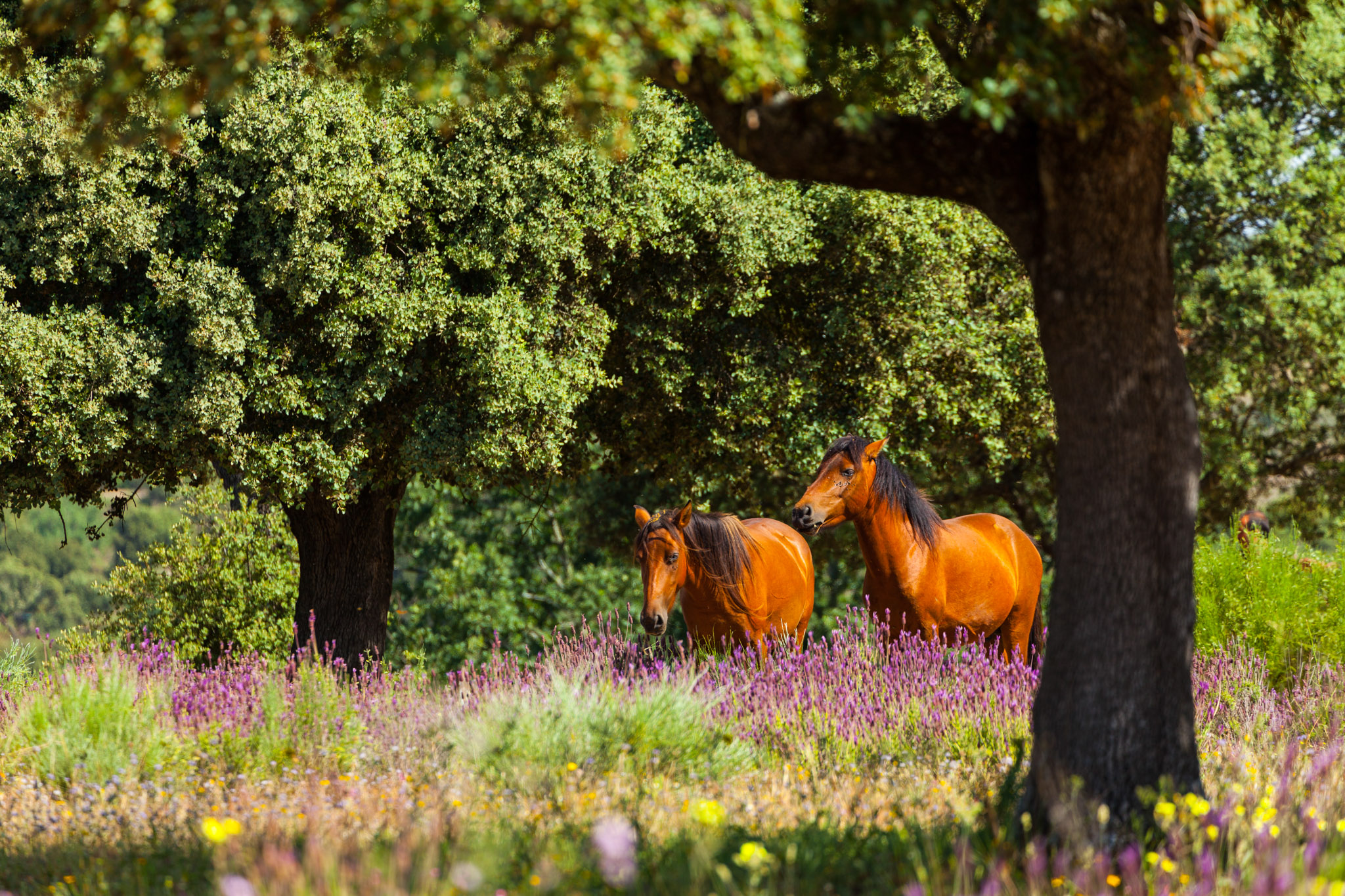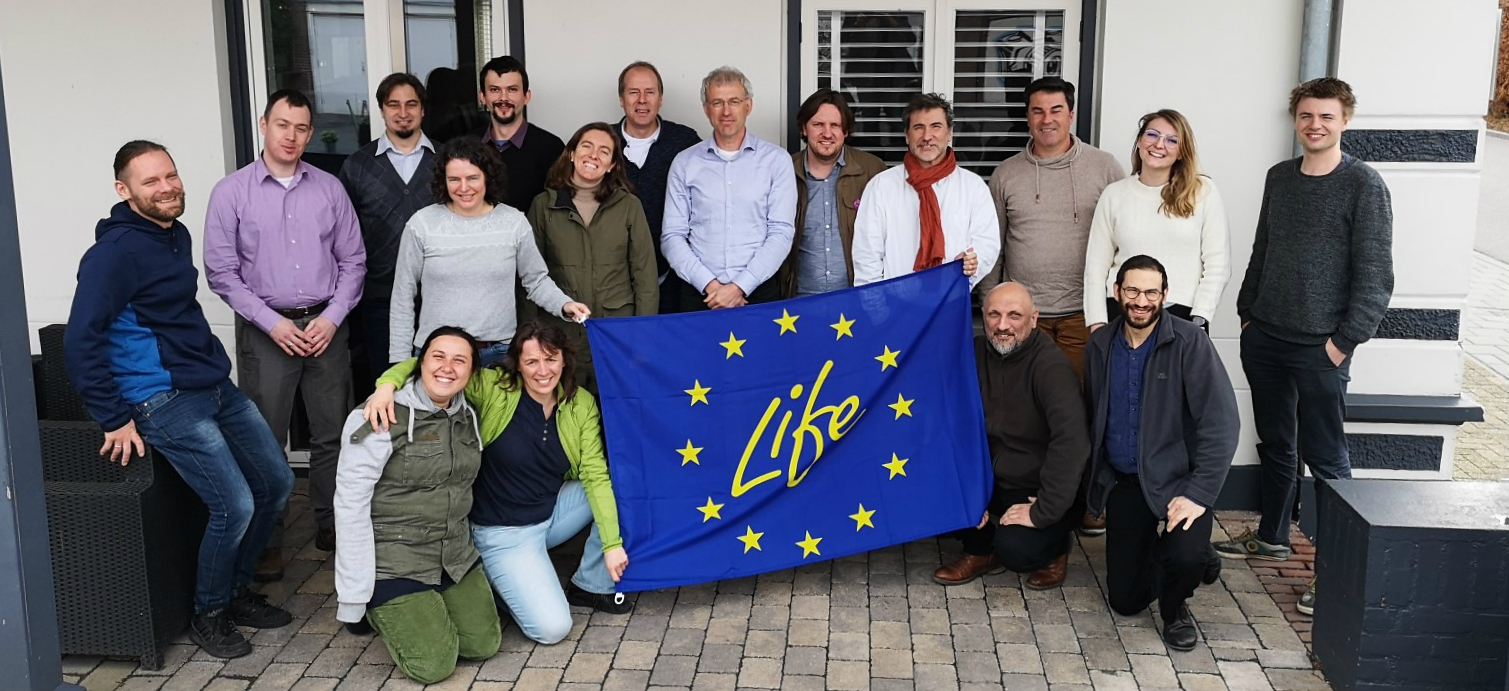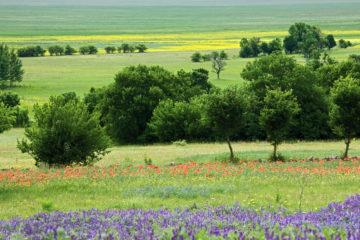Held in the Gelderse Poort area of the Netherlands – an early showcase of European rewilding involving natural grazing – the three-day meeting sees GrazeLIFE project partners come together for the first time. Coordinated by Rewilding Europe, the three-year project will hopefully lead to increased EU legislative support for more natural grazing systems.

Partners in the new GrazeLIFE project gathered yesterday in the Gelderse Poort area in the eastern Netherlands for the start of a three-day inaugural meeting. This is the first time that all partners have met in person since EU funding for the project was secured in late December last year.
The aim of three-year GrazeLIFE project – which is being coordinated by Rewilding Europe – is to evaluate the benefits of various land management models involving domesticated and wild/semi-wild herbivores. This, in turn, will hopefully lead to more supportive EU policy and legislation. The project will consider grazing management models in eight regions (encompassing nine European countries: Spain, Portugal, Lithuania, the Netherlands, Croatia, Ukraine, Germany, Poland and Bulgaria).
The meeting, which will see partners discuss various methodologies and organisational aspects of the project, brings togther a wide range of participants (see boxout below). These include those involved in the eight regional grazing studies, as well as academic experts and a representative from the EU. The latter will help to explore the potential for implementing more natural grazing systems across Europe through new legislation, in light of EU goals on climate adaptation, biodiversity, wildfire prevention and other nature-based services.

“This meeting represents an exciting milestone,” says Wouter Helmer, Rewilding Europe’s Head of Rewilding. “From now onwards, project partners will become a unified team. We will work together to develop solutions and recommendations for targeted EU actions that, if implemented, will see more natural grazing systems deliver a whole range of benefits for Europeans and European wild nature.”

The fact that the GrazeLIFE meeting is being held in the Gelderse Poort, a cross-border rewilding area on the border of Germany and the Netherlands, is particularly apt. Located close to the Rewilding Europe head office in Nijmegen, the Gelderse Poort project is one of the earliest showcases for rewilding, with rewilding efforts starting here in the early 1990s. Today, with much of the area grazed by reintroduced herds of free-roaming herbivores such as Galloway cattle and Konik horses, the project has not only boosted biodiversity significantly, but delivered numerous benefits to local residents and the local economy.
“Holding the meeting in the Gelderse Poort allows participants to witness first hand three different grazing systems,” explains Helmer. “These relate to traditional grassland conservation, the greening of agriculture, and the rewilding of floodplains.”
Natural grazing by wild herbivores was, historically, a key process in the shaping of biodiversity-rich mosaic landscapes across Europe. But factors such as domestication and changes in land use eventually saw most of these herbivores replaced by livestock. Today, with the the ongoing trend of land abandonment in many European regions resulting in declining livestock numbers, there is growing interest in different forms of herbivory in European landscapes.
Read more about Rewilding Europe’s involvement with natural grazing here.
| Participants of the GrazeLIFE inaugural meeting, March 11-13, 2019 | |
|---|---|
| Project beneficiaries: | |
| Rewilding Europe | Wouter Helmer, Dana Bezdickova |
| University of Leipzig, DE | Guy Pe’er, Alfons van der Plas, Julia Rouet Leduc |
| Baltic Environmental Forum, LT | Zymantas Morkvenas |
| ARK Nature, NL | Esther Blom |
| University of A Coruna, ES | Laura Lagos |
| Rewilding Ukraine, UA | Oleg Dyakov |
| Rewilding Rhodopes Foundation, BG | Desislava Kostadinova |
| Additional experts / members of the advisory committee: | |
| Netherlands Inst. of Ecology, NL | Liesbeth Bakker |
| University of Porto, PT | Francisco Moreira |
| Subcontractors for area studies: | |
| Rewilding Velebit (UDV), HR | Davor Krmpotic |
| AT Natureza, PT | Carlos Pacheco |
| Rewilding Oder Delta, DE | Jonathan Rauhut |
| EC-ENVI-representative: | Daniel Nuijten |
| NEEMO monitor*: | Kristijan Civic |
* due to LIFE project regulations, the inaugural meeting is combined with the first visit of the NEEMO monitor to the project on March 12.
